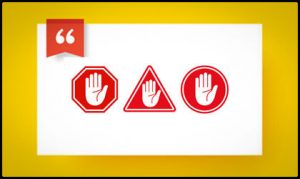In Germany and the new Gemeinsamen Glucksspielbehorde der Lander (GGL) gaming regulator has announced that it wants all of the nation’s Internet service providers to begin voluntarily blocking access to unlicensed iGaming domains.
The federal watchdog used a Wednesday press release to declare that such bars should be used as an ‘enforcement instrument’ when individual iGaming operators refuse to respond to an official ‘prohibition notice.’ The regulator moreover asserted that these blocks may be instituted ‘either informally in cooperative cooperation or within the framework of administrative procedures.’
Cooperation compromise:
Launched three weeks ago following last year’s enactment of the New State Treaty on Gambling (GluNeuRStV) to create a federally-regulated German iGaming market, the GGL revealed that it has made its request known via a letter that was sent to all local Internet service providers. The organization pronounced that it has also offered to work with telecommunications firms to implement blocks ‘through direct communication’ in preference to ‘the formal administrative procedure.’
Read a statement from the GGL…
“Internet service providers are of course free to reject this offer and only act within the framework of a formal administrative procedure and this administrative act can be subject to judicial review. If the Internet service provider then fails to comply with the formal request to block an illegal gambling offer from the network, we can impose a correspondingly threatened penalty payment, which is also based on the economic capacity of the addressee and can amount to up to €500,000 ($509,400).”
Trespass judgement:
The GGL acknowledged that its request for German Internet service providers to begin blocking access to all unlicensed iGaming domains could be seen as an encroachment upon the fundamental rights of these firms and their customers. Nevertheless, the regulator went on to claim its ask does not breach the freedom of service and establishment tenets of the European Union and complements its stated mission of combatting illicit operators so as to reduce the prevalence of problem gambling and protect aficionados and minors from unscrupulous enterprises.
The statement from the GGL read…
“Against this background, according to our examination, these interventions are justified and meet the proportionality requirements to therefore be permissible. We have also taken into account the relevant European regulations, in particular freedom of service and freedom of establishment and the requirements for network neutrality. Here, too, we come to the conclusion that these are not violated by blocking the illegal offers.”



